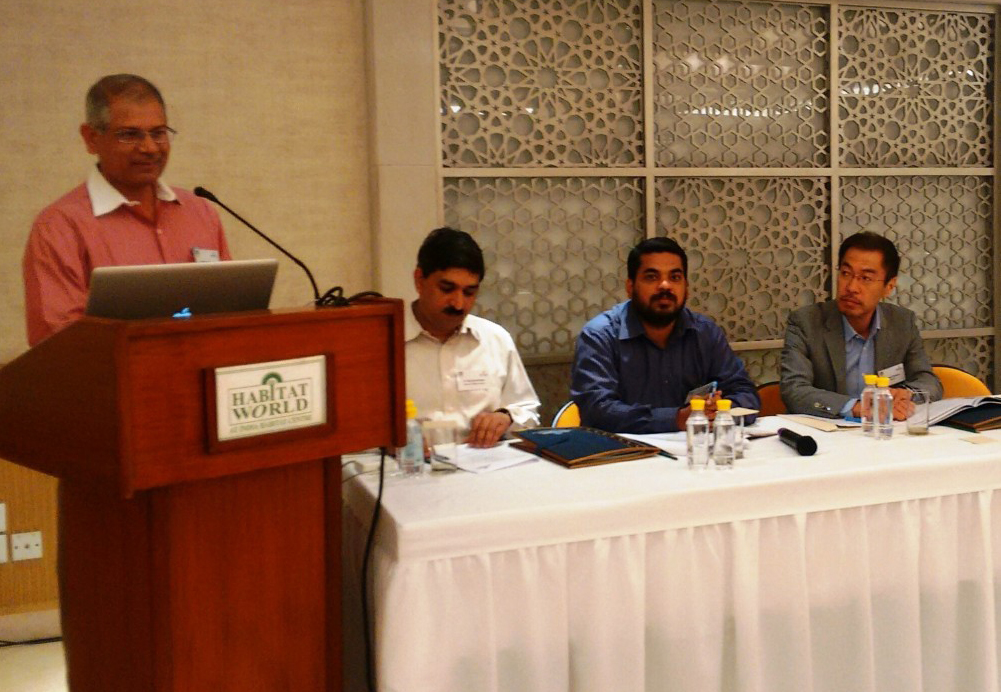Workshop on Dissemination of Outcomes of Research on Community Radio Sustainability
 Workshop on Dissemination of Outcomes of Research on Community Radio Sustainability
Workshop on Dissemination of Outcomes of Research on Community Radio Sustainability
New Delhi | May 7, 2015: Ideosync Media Combine organized a workshop in collaboration with Commonwealth Educational Media Centre for Asia (CEMCA) and United Nations Educational, Scientific and Cultural Organization (UNESCO), New Delhi on the ‘Dissemination of Research Outcomes on Community Radio Sustainability’ at the India Habitat Centre, New Delhi on May 6, 2015.
The workshop began with an introductory speech by Mr. N. Ramakrishnan of Ideosync Media Combine. Dr. Ramesh Sharma (Director, CEMCA) in his opening remarks explained the role of CEMCA in promoting Community Media and Learning in the Commonwealth Asian region. Dr. Ankuran Dutta (Programme Officer, CEMCA) spoke about the importance of sustainability for the community radio stations of South Asia.
Deliberating the international perspective, Mr. Shigeru Aoyagi (Director and UNESCO Representative to India, Bhutan, Maldives and Sri Lanka) highlighted the role, use and importance of community radio in developing countries. He further expressed concerns towards the recent earthquakes in Nepal and stressed on the role of community radio in helping in times of Disaster.
Ms. Venu Arora and Ms. Leonea Fernandez presented the methodology adopted for this participatory research and the research outcomes. This was followed by sharing of their experiences by representatives of various community radio stations such as Saiyarre Jo Radio and Waqt Ki Awaaz, India; Radio Bikrampur, Bangladesh; Radio Menchhyayem, Nepal in undertaking participatory research on sustainability. Participants spoke about how the research has helped their radio teams to look at sustainability of their respective stations in a new light and accordingly plan activities that contribute to sustaining their local radio stations. The research findings show that while CR stations in the region have made much progress in achieving social sustainability by engaging with their communities, a lot still needs to be done to build their institutional character as a local media resource that is independent, transparent and accountable to the community. The research also showed that policy restrictions on content that prevents local news impact sustainability of the CR stations.
Further to the discussions on the critical findings of the research, recommendations were made regarding developing organizational policy for operational Community Radio stations, making critical changes in existing CR policies in the region as well as areas for capacity enhancement for CRs including assisting them in undertaking local research. Participants also expressed that there were important areas related to sustainability for further work especially by expanding the regional and geographic coverage of such a research. Apart from representatives from participating community radio stations, workshop participants included Prof. Vinod Pavarala (UNESCO Chair on Community Media); Mr. Ashish Sen (AMARC); Ms. D. Rukmini Vemraju, Ms. Jayalakshmi Chittor, Mr. Anirban Sarma (UNESCO). Members of the Community Radio Association and Community Radio Forum also contributed to the formulation of the recommendations. The workshop was concluded with a vote of thanks proposed by Ms. Hima Bindu of Ideosync Media Combine.

